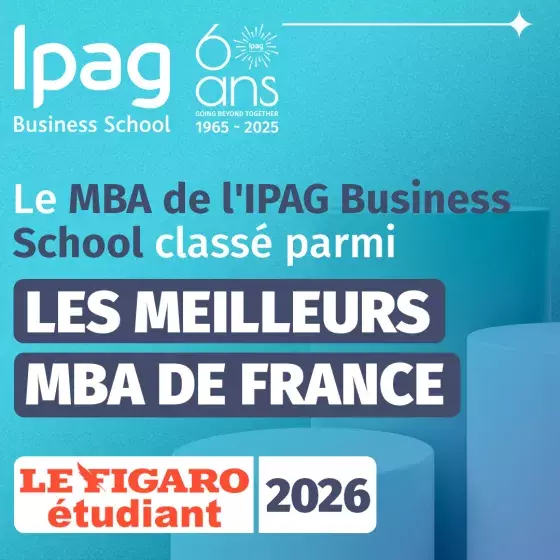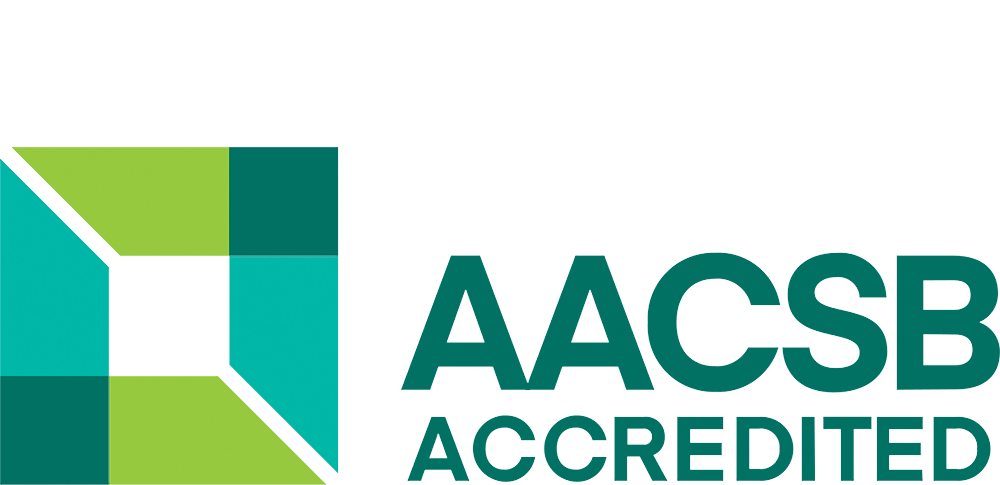
18 Nov 2025
Le Figaro Étudiant ranking of the best MBAs in France in 2026
The IPAG Business School MBA among the best MBAs in France
Read the article


04 May 2023

If you’re following the news at all, you must probably have heard of NFTs, which are non-fungible tokens based on blockchain technology. That being said, you might not find it that easy to really understand what we are talking about, especially since there is a pretty important fintech aspect behind it. Law Accounting and finance teacher at the IPAG Business School, Robert Joo therefore wrote a book on this topic together with his student Stepan Krivosheev, as well as with IT specialist Aurel George Proorocu.
The result of this unique collaboration, the book “NFT Gold Rush” explains everything you need to know about NFTs. While it starts with an introduction as to why NFTs have become a big trend in the last few years, it also goes into the development of the web beyond web 3.0 where private ownership on the web has the potential to become something very common.
Hi Robert, hi Stepan. It is pretty unusual for a teacher and his student to write a book together. How did you come up with the idea of writing it, and did you actually think you were going to publish it?
Stepan: I remember the call from Robert. We were working with Aurel George Proorocu on a project called the Chess Gambit Club, and we got a call from Robert who said: “I got us a book deal. Let’s work on the book”. The publisher actually found us on a platform called Udemy, where Robert and George created a very successful NFT course.
Robert: I then invited Stepan to join the project because I’m clueless regarding social media – I don’t even have a smartphone to be honest. But you can’t write a book on NFT without understanding social media as it is a big part of NFT marketing since it is where the customers come from. The book is divided in between 13 different chapters, and we each wrote some of them.
Stepan: Yes. George took care of the technical chapters, Robert of the legal and fintech ones, and I took care of the marketing ones.
Robert: What is really interesting is that blockchain changed everything. The finance industry changed completely as it brought authentication of unique digital assets, which is particularly interesting regarding the educational sector. For instance, you can now get certificates and diplomas in the form of non-fungible tokens, and frankly there is a massive amount of other possibilities and applications. It started with art, but there is much more to explore. People have a misconception that NFTs are just about art, but there is much more to it.
Why did you write the book and who did you write it for?
Robert: There were many complex books on the market, but I realised there was nothing about the very basics of NFTs, so we decided to write a book “for beginners”, as you can see in the title, which is “the ultimate NFT handbook for beginners”.
Stepan: Yes, absolutely, this book was targeted at a demographic that know little to nothing about this exciting world and is eager to learn.
What was the biggest strength of you three working together?
Robert: We have to say the main thing is the dialectic between three generations working together, as in a peer review with non-peers. I’m not a fan of generation Z, so there were debates about the future of technology between us, but also because Stepan is French originally from Moscow, and I am from New York, so there are many cultural differences. Since we have different areas of expertise, it also meant we combined Wall Street, cybersecurity and digital marketing between the three of us.
Stepan: Besides, we all reviewed each other’s chapters, sometimes making changes, so there is a little bit of each of us in each chapter.
Did writing the book change your opinion on NFTs?
Stepan: To a certain extent, yes. I think I went into the book thinking I knew all there is to know about NFTs, and I understood that there are some aspects that are a lot more complex than what I thought and some research had to be done on them.
Robert: We also discovered that France has the world’s biggest annual NFT salon / event called NFT Paris, which takes place in the Grand Palais. It was attended by 18,000 fans, followers, and luminaries of NFTs.
If you had to explain NFTs in a very few words to someone who has never heard of it, how would you?
Stepan: I would say a technology that gives you the ability of private ownership on the web.
Robert: It is a type of gold (which explains the analogy we made with the gold rush) for the digital age. A completely original type of property, that is a conduit for possibilities. Before the NFT gold rush started, in the days being asked to write an article on the subject I came up with the name “fashion coin” for fashion design related NFTs, which was at a time before the concept of NFTs existed. And now today, so many years later, we have an ideological disagreement regarding web 4.0, while we all agree that NFTs are the embodiment of the democratisation of the web. Because they offer digital ownership!
How long did it take to write?
Robert: We started during Covid times when there was not much to do, and it took over a year to write the book because we really wanted to take the time to write something comprehensible and accessible. Besides, we also decided to give a free NFT with the book in order for people to practice using it.
Stepan: Yeah, I put my heart and soul into it, so I believe the final product is very rewarding. But being a student at the time, I had to dedicate specific times to the book that I would not spend on my studies, which meant I had literally no personal time left.
What were the biggest challenge writing the book?
Robert: The biggest disagreement is on some of the terminology of tech, for instance whether we should say web 3.0 or web 4.0. I wanted to call NFT cyber ownership web 4.0 while Stepan disagrees, and thinks web 4.0 is a tech term ‘reserved’ for AI expansion in the metaverse. But I claimed that one cannot hold words and numbers to account for an in determined future which is not yet here. Reserving terminology for future events is absurd. So let’s fight and argue over what web 4.0 or 5.0 will be. I have a big issue and take exception with the tech generation, who is always on their smart phone, and that is Gen Z. Tech defines nothing. In real life only people define things!
Stepan: Yes, I agree, I believe terminology was the biggest point of disagreement while writing the book.
Is there any danger in terms of stealing ownership with the NFTs?
Stepan: The beauty of NFTs is that, since they are connected to the blockchain, they are completely traceable, which means they are close to impossible to hack. The only error would have to be human since it is the only weak link there. But as long as they remain on the blockchain, there should be no security issues with it at all.
Robert: Blockchain ledger technology makes for perfect authentication and therefore gives perfect provenance to prove ownership.
Is there any legal action possible if you lose your NFT?
Robert: If it is your mistake, there can be. For instance, I remember there was the case of a rapper selling his NFTs and failing to deliver them to the people who bought it, so he could clearly be sued.
Stepan: Yes, I guess in the case of a rug pull, you could, apart from that, if a mistake is on your end, then so will be the responsibility.
Is there anything else you want to talk about?
Robert: To people who are just discovering all of this, I want to say the blockchain is very complex, but we have to learn how to manage it because in the future many facets of life will start to depend on NFTs. Most products will have NFTs and will be tagged that way. There will be a full spectrum digital commodification of society. People will have to get used to the fact that most transactions will be blockchain based which will allow for global decentralisation of all forms of private property. This is my libertarian dream. It is the opposite of a society where everything is centralised. Call it freedom and democracy 2.0 if you want. Banks and other organisations that depend on secret centralised accounting ledgers will not like it at all. For the blockchain is completely open, transparent and accessible to all. But most companies will embrace it, like we are already seeing in the real estate and luxury industry for instance.
Stepan: Absolutely, and that was our vision and principal reasoning while writing this book – to give the average person the resources to educate themselves with a relative simplicity in order to not be taken advantage of in the near future, when the world goes decentralised.

18 Nov 2025
The IPAG Business School MBA among the best MBAs in France
Read the article

06 May 2021
On 23 April, the first Environment Day was organised at the IPAG for all 2nd year PGE students.
Read the article

26 Feb 2020
Inside IPAG Lab #3: Isabelle Aimé presents the evolution of the product manager
Read the article
Application
Contact